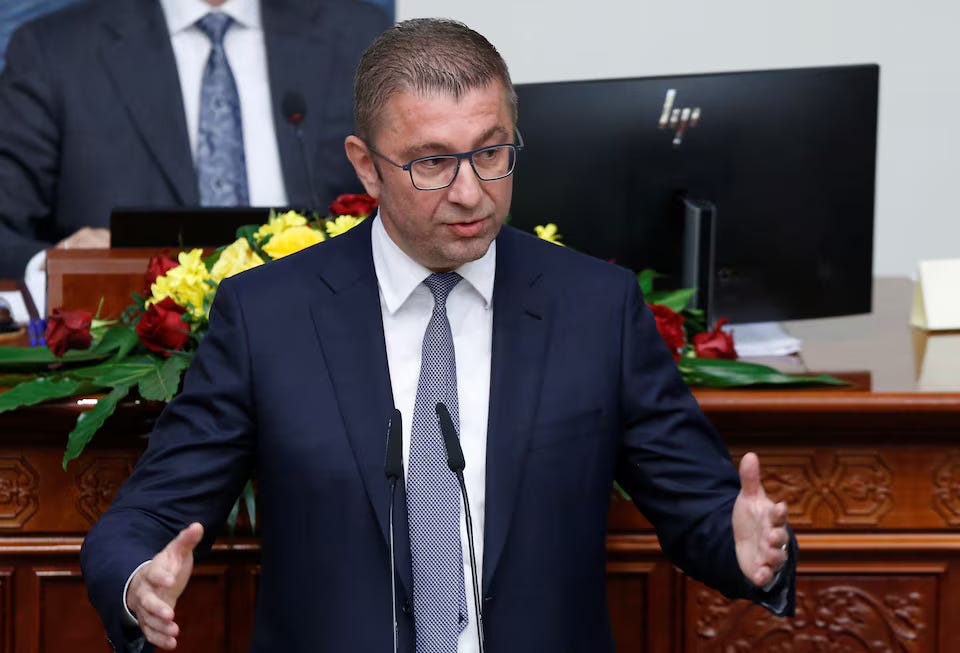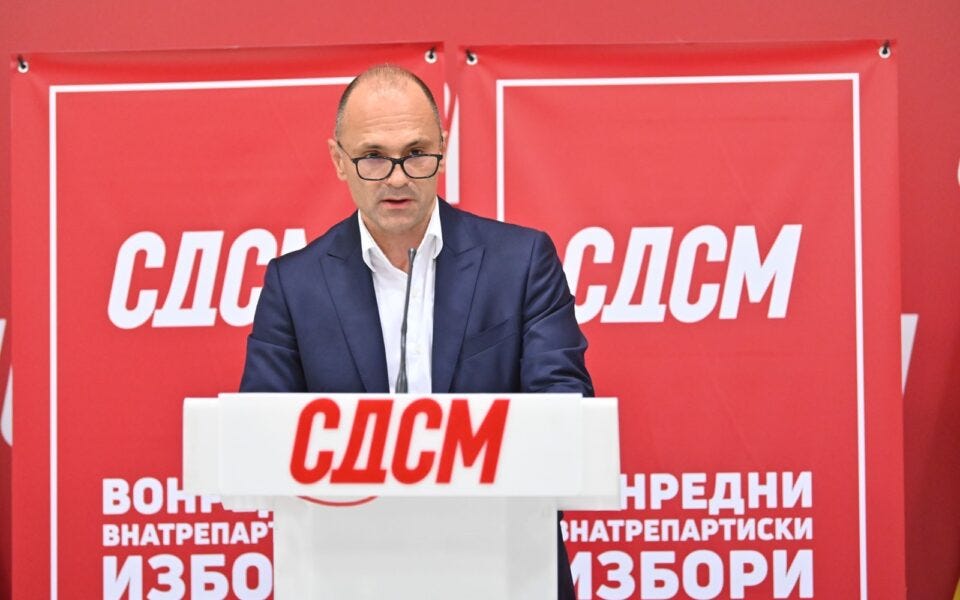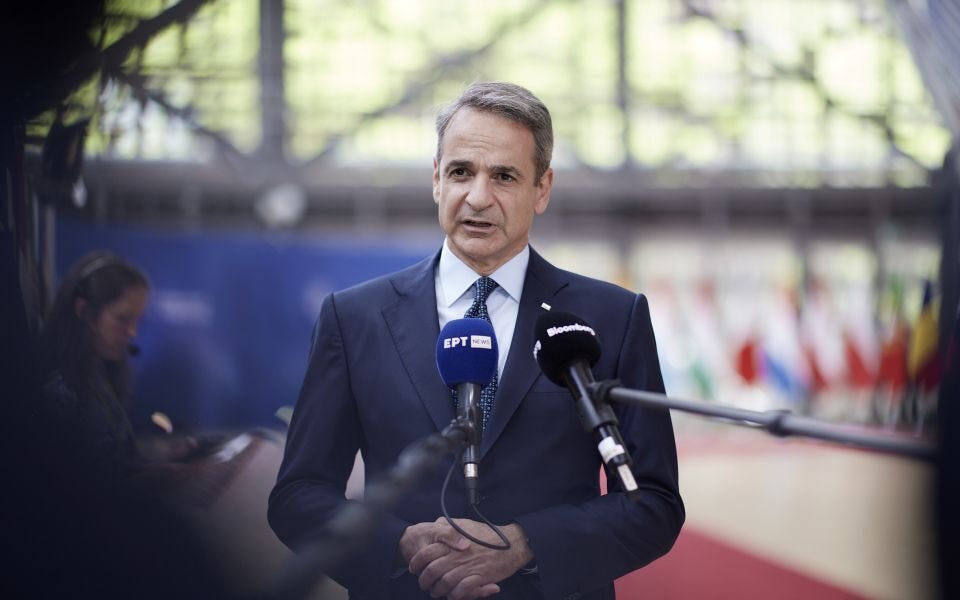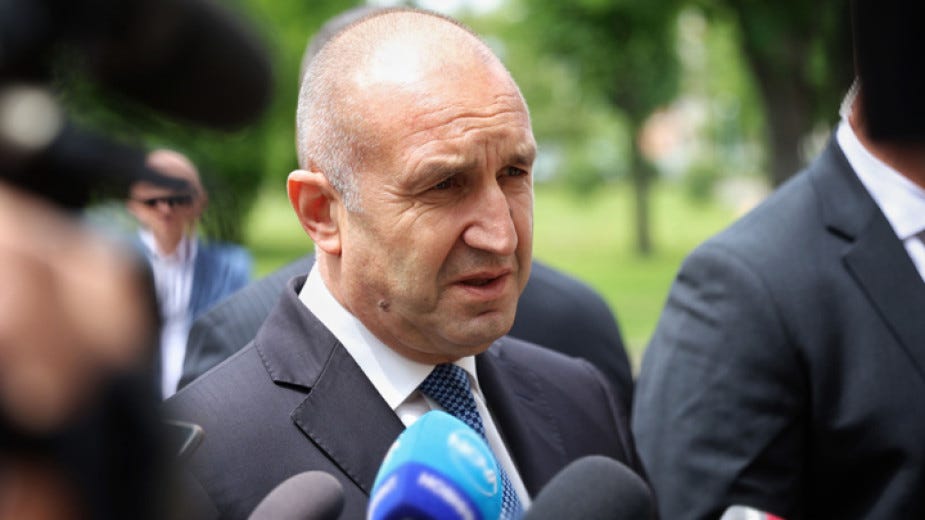This is Macedonian Matters. I’m Aleksej Demjanski.
This is your weekly curated news from North Macedonia.
After a brief hiatus, I want to welcome back all our readers, new and old! Thank you for your understanding as I’ve been away for over a month on work travel, holidays, and a much needed vacation.
This week’s newsletter is longer than usual given we’ve got a lot of ground to cover.
Thanks again for your support! The newsletter will always be free. If you feel inclined and want to buy me a cup of coffee (or a beer) as I toil away after work or on a Sunday morning I will humbly accept it! Appreciate y’all!
If someone shared this with you or you happened upon it and want to subscribe to get the weekly newsletter in your inbox:
The Matters
North Macedonia’s new government sworn in
Venko Filipce elected new leader of SDSM
Census in Albania - less Macedonians, more Bulgarians
Bulgaria and Greece express concerns over Prespa agreement
Quick hit news items from the past few weeks
North Macedonia’s new government sworn in
North Macedonia’s parliament voted on and swore in the country’s new government on June 23rd. The government will be led by the center-right VMRO-DPMNE in coalition with the Albanian VLEN bloc and the ZNAM movement.
VMRO-DPMNE leader Hristijan Mickoski is the Prime Minister.

Below is a list of all the new ministers:
Minister of Defense - Vlado Misajlovski (VMRO-DPMNE)
Minister of Interior - Panche Toshkovski (VMRO-DPMNE)
Minister of Justice - Igor Filkov (ZNAM)
Minister of Community Relations and Vice Premier - Ivan Stoilkovic (Democratic Party of Serbs)
Minister of Foreign Affairs and Trade - Timcho Mucunski (VMRO-DPMNE)
Minister of European Affairs - Orhan Murtezani (VLEN)
Minister of Finance - Gordana Dimitrievska Kochoska (VMRO-DPMNE)
Minister of Economy and Labor - Besar Durmishi (VLEN)
Minister of Energy, Mining, and Mineral Resources - Sanja Bozhinovska (VMRO-DPMNE)
Minister of Agriculture, Forestry, and Water Management - Cvetan Tripunovski (VMRO-DPMNE)
Minister of Health - Arben Taravari (VLEN)
Minister of Education and Science - Vesna Janevska (VMRO-DPMNE)
Minister of Social Policy, Demography, and Youth - Fatmir Limani (VLEN)
Minister of Local Self Government - Zlatko Pirinski (VMRO-DPMNE)
Minister of Culture and Tourisam - Zoran Ljutkov (VMRO-DPMNE)
Minister of Digital Transformation and Information Society - Stefan Andonovski (VMRO-DPMNE)
Minister of Public Administration - Goran Minchev (ZNAM)
Minister of Transportation and Vice Premier - Aleksandar Nikolovski (VMRO-DPMNE)
Minister of Environment and Spatial Planning and Vice Premier - Izet Mexhiti (VLEN)
Miister of Sport - Borko Ristovski (VMRO-DPMNE)
Minister without portfolio for Political Systems and Vice Primer - Ljupcho Dimovski (Socialist Party)
Minister without portfolio for Good Governance and Vice Premier - Arben Fetai (VLEN)
Minister without portfolio for Integration and Implementation of the Decade of the Roma - Shaban Saliu (Democratic Forces of the Roma)
The number of ministers has increased while the number of women serving as ministers will be only three of twenty four.
Venko Filipche elected new leader of SDSM
Former health minister, Venko Filipche, was elected as the new leader of the Social Democrats on Sunday June 30th. Filipche was in the running for the top spot in the party alongside Jovan Despotovski, former head of the Directorate for Technological Industrial Development Zones as well as Aleksandar Bajdevski, former Deputy Minister for Information Society and Administration. Former Defense Minister Slavjanka Petrovska was also in the running but dropped out a day before the election.
As president of the party, Filipche will have a lot of work to do to rebuild the party’s image following major losses in this year’s presidential and parliamentary elections. He promised reforms, reorganization, and unity in the party. He is seen as close to former Prime Minister Zoran Zaev.

The journalists at Investigative Reporting Lab published a recent investigation which found that “…Filipche, in the questionnaire submitted… to the Anti-Corruption Commission, hid a the real estate company from Bulgaria… The search through the public records in Macedonia led us to a new investment by the families of ex-prime minister Zoran Zaev and ex-minister Filipce. Their brothers Vice and Nikola are on the verge of commissioning a photovoltaic plant built for them by Kocho Angjushev. In a conversation with IRL journalists, Filipche said that he forgot to register the company and said that he will immediately go to the Anti-Corruption Commission to supplement the questionnaire about his property situation.”
Census in Albania - less Macedonians, more Bulgarians
Several political parties and associations representing ethnic Macedonians in Albania have expressed concern over the latest census which showed the number of Macedonians nearly halved at 2,281 compared to more than 5,500 in 2011. North Macedonia’s Foreign Ministry reacted stating that "the numbers do no realistically portray the number of Macedonians living in Albania.” The Ministry also reacted to have Albania’s Institute of Statistic correct their initial nomeclature from “North Macedonians” to “Macedonians".”

On the other hand, almost 8,000 people declared themselves as Bulgarians for the first time. Over the past year, there have been claims of pressure and bribery to have folks declare themselves as Bulgarians rather than Macedonians. As 360 Degrees reports in their extensive investigation, there is speculation that many there have been granted Bulgarian citizenship in exchange for this or been threatened with having it revoked.
Bulgaria and Greece express concerns over Prespa agreement
Following President Gordana Siljanovska Davkova’s omission of “North” during her inauguration and Prime Minister Mickoski’s insistance that domestically he will continue to use “Macedonia,” both Bulgaria and Greece have called on North Macedonia to abide by international agreements.
During last week’s meeting of the Council of the European Union, the Greek Prime Minister Kiriakos Mitsotakis stated that:
“Since (at the meeting) there was a part with questions about the enlargement (of the EU), I took the initiative and informed my colleagues in the European Council about the developments in North Macedonia, about the fact that both the president and the prime minister are actually directly violating the Prespa Agreement, ignoring in practice the usage erga omnes and choosing to use a name other than the constitutionally defined name of the state for internal use…
I made it clear that if Skopje insists on this line, in essence, it will make difficult, if not practical, to cancel any process of immediate convergence with the European family. So I think that everyone should understand the consequences of their actions and understand that compliance with European legislation obviously goes through consistent compliance with international agreements signed by both parties.”

Similarly, Bulgaria’s government came out with a statement that it will insist on its position being made evident in the conclusions of the meeting. The statement reads:
“Bulgaria will insist that the European Council, when adopting the conclusions of the meeting, include a text on the Republic of North Macedonia.
Prime Minister Dimitar Glavchev will be in Brussels today and tomorrow, where during the discussion of the topic he will ask the European Council to confirm the conclusions of December 14, 2023, as well as the conclusions of the Council for North Macedonia and Albania of July 18, 2022 and to urge North Macedonia to take the steps outlined there to make progress on its path to European integration.
According to the Bulgarian Prime Minister, it is important to emphasize that the implementation of all commitments, as well as the progress of all reforms related to the EU, remain crucial.”
Bulgaria’s President Rumen Radev and North Macedonia’s Prime Minister Mickoski also had a back and forth after Mickoski stated that there is a possibility to change North Macedonia’s negotiating framework with the EU and that a solution will be sought with the new Bulgarian government.

Radev responded stating, “Today the masks finally fell off. The new government in our southwestern neighbor has clearly shown that the greatest fear of the political class in this country is to recognize the very existence of the words 'Bulgarian' and 'Bulgarian' in the Republic of North Macedonia… if the EU does not engage with the European perspective of the Balkans based on clear norms and values, then sooner or later the Balkans will confront Europe with balkanization.”
Mickoski responded that “Fourteen judgments of the European Court of Human Rights have been passed - noting that there is a Macedonian minority in Bulgaria whose right to organize in a non-governmental organization, not be added in the Constitution, is unfortunately, by politicians such as Mr. Radev made impossible. I call for good neighborly relations, on a two-way street, to jointly find a solution because we, as good neighbors, should talk on the basis of arguments and facts, not to politicize this, not to reduce it to low passions. This nation has done a lot for Europe's future and I expect Europe to give back to this nation and this country…”
Following the meeting of the Council of the European Union, North Macedonia’s MFA released a statement highlighting that:
“The Ministry of Foreign Affairs and Trade fully respects the obligations undertaken under international agreements to which the Republic of North Macedonia is a signatory, including the Prespa Agreement, but we remind you that its implementation is an obligation for both parties.
At the same time, we reaffirm our readiness to use all the opportunities offered by the Prespa Agreement for further strengthening of bilateral cooperation in all areas of mutual interest.
We remain fully committed to the implementation of the European integration process by consistently rounding off and upgrading the initiated reforms for EU membership, as our top foreign policy priority.”
Quick hit new items from the past few weeks
VLEN’s Afrim Gashi was voted Speaker of Parliament. He caused a bit of uproar taking his oath in Albanian rather than Macedonian.
The fifth Skopje Pride was held last week organized by LGBT+ and human rights organizations. President Gordana Siljanovska Davkova met with the organizers of Pride. In a Facebook post, she said that “we discussed their activities so far, as well as future plans at raising public awareness of respect for diversity, in the context of the realization of basic human rights.”
Following criminal code changes in September, several high profile cases against the previous government of VMRO-DPMNE have been dropped. Additionally, several high ranking former officials have recently been set free, including former Minister of Transportation Mile Janakieski and former Secret Police Chief Sasho Mijalkov.
A draft law on the reorganization of government, which allowed for the increased number of ministries and their distribution, was passed via a shortened procedure by the Assembly. The Platform for the Fight Against Corruption, a coalition of CSOs, raised concern at the lack of consultations in the process.
A June 18-21 poll by IPIS found that Prime Minister Hristijan Mickoski was the most trusted politician and that most of the respondents believe the new government will be better than the previous one.
As AP reports, “North Macedonia’s government on Tuesday announced a $500 million project with renewables investor Alcazar Energy Partners to build the largest wind farm in the landlocked country.”
North Macedonia’s “ethnic balancer” for the distribution of government jobs based on ethnic quotas has been a hot topic. The New York Times has a story digging into it. VLEN’s Izet Mexhiti has recently talked about how the new government will attempt to overhaul the process. The newly appointed Minister of Digital Transformation, Stefan Andonovski, also made a statement that the process for getting rid of the balancer would happen in phases. It remains unclear what the government’s exact plan is to tackle this issue, which is politicized along ethnic lines and seen as a major source of corruption and nepotism.
That’s it for this week’s Macedonian Matters! Thanks for subscribing!
Have feedback? Feel free to reply to this email or add a comment on Substack.




